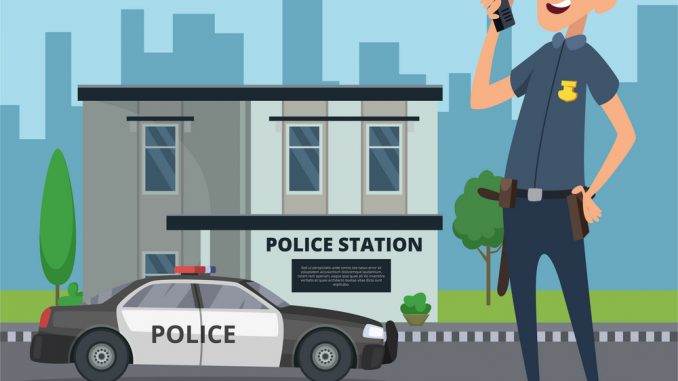
A new review of the Facebook postings of current and retired police officers is getting attention for documenting, with numbers, what civil rights activists have long attempted to draw attention to: A sizable chunk of our nation’s law enforcement officers are themselves engaging in online—and public—racism and bigotry.
Of the pages of officers whom the Plain View researchers could positively identify, about 1 in 5 of the current officers, and 2 in 5 of the retired officers, made public posts or comments that met that threshold — typically by displaying bias, applauding violence, scoffing at due process, or using dehumanizing language. The officers mocked Mexicans, women, and black people, celebrated the Confederate flag, and showed a man wearing a kaffiyeh scarf in the crosshairs of a gun.
That communities may not be eager to trust officers who, upon leaving work for the day, write racist and violence-endorsing posts is an understatement. That about one in 5 current officers are obtuse enough to not see it as a problem is … alarming.
(snip)
One offered defense of the postings, given to BuzzFeed by a former Baltimore officer, is that much of it is workplace venting, of the usual grim sort that can be found in numerous stressful or dangerous professions. This shouldn’t be discounted out of hand: From doctors, paramedics, and soldiers to miners and veterinarians, members of every profession tend to bond with internal phrases and grim or gory jokes that eavesdroppers might find appalling. It is a time-tested method of coping with tragedies endemic to those insular communities.
But that would at best account for the violent posts, about chokeholds and tasers and which suspects deserved old-fashioned justice by bullet. Racist, misogynistic, and bigoted posts cannot be similarly explained away as mere workplace humor. And it does seem that the Plain View results correlate to civil rights violations in the manner one would expect: BuzzFeed writes that, of the 328 Philadelphia officers noted to have posted bigoted or violent content, more than a third were officers that could be matched to prior federal civil rights lawsuits.
If there is any good news to be had here, it is that these behaviors are already, at least in theory, often barred by department policies. The bad news is that nobody appears to check: In Philadelphia, St. Louis, Phoenix, and Dallas, departments contacted by the reporters said they would be investigating the posts. That is a shame. The numbers seem to suggest that if police departments across the nation were more frequently checking up on what their officers were sharing with the community on Facebook, it might provide a more timely heads-up into which officers might soon be the subject of future civil rights suits.
*see full story by Daily Kos